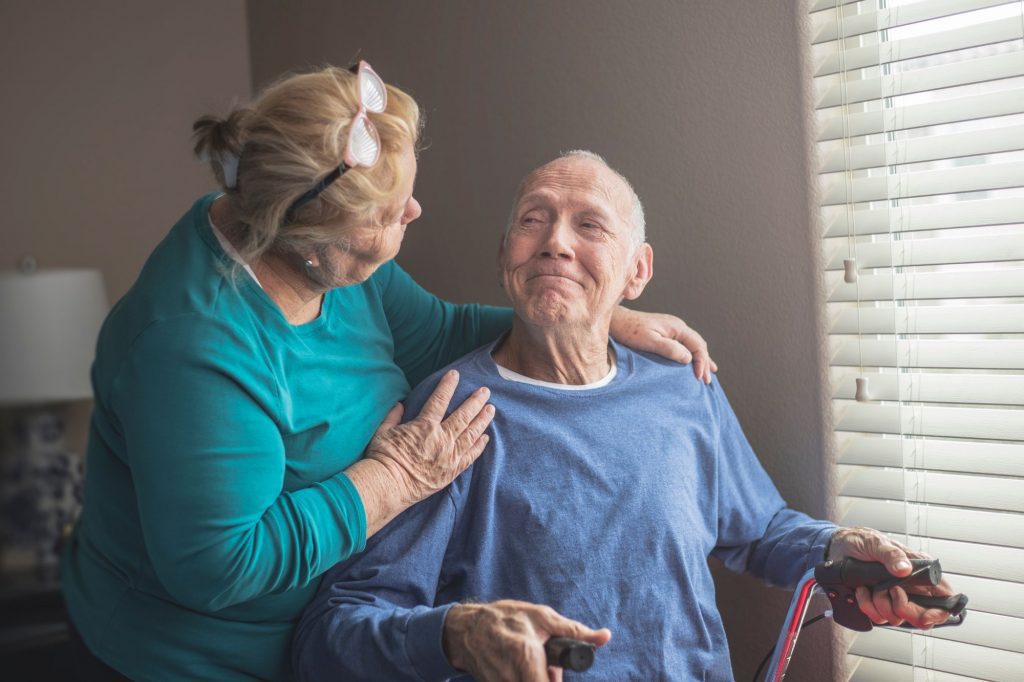We often get asked how to navigate the delicate and sensitive process of moving your loved one to a care facility, this could come with many challenges. Whilst it’s important to manage expectations, one needs to understand the fears and thought processes around it too.
How does one approach the sensitive nature of facilitating a move of a loved one or aged resident in need of special care due to physical or cognitive decline to a retirement village or residential care home?
Many aged residents prefer to reside at home as long as possible, and market indicators show residents prefer private care at home to ensure they maintain their independence. Yet, we will all be faced with difficult circumstances where this might not be possible. Many families find the move of elderly parents or family members challenging. The emotional burden can be very trying and cumbersome.
When complications become evident, and the decline of our loved one has been diagnosed or cone can clearly notice inadequate support systems and the inability of our loved ones to look after themselves, one will have to start the process of having conversations about alternate care options.
There is no immediate solution to this problem as every situation is unique. General guidelines can be identified to facilitate the process and maintain our loved one’s dignity. But what if your loved one stubbornly refuses to co-operate? Careful consideration planning and understanding need to be adopted. Below is some considerations to be taken:
The practical guidelines.
Older Persons Act, no 13 of 2006
In elderly care, the Older Persons Act, as mentioned above, is the framework in which any decisions on or about the elderly is taken. The following principles can be taken into account:
- The inherent dignity of the elderly must be respected. (Chapter 1,5 – {2} a)
- A problem-solving approach must, as far as possible, be followed. (Chapter 1,5. {3} a)
- Older persons must be encouraged to stay within their familiar surroundings as long as possible,
with the possibility of home-based care in case of deteriorating health. (Chapter3, 10{a} 11. {ii} ).
- An older person may only be admitted to a residential facility with their consent. In case of mental incapability, such consent will be given by an authorised person. (Chapter 4, 21, {3} {a} )
- Should a person be in a state of physical, mental or social neglect, certain steps may be taken. (Chapter 5)
What happens in practise?
In a family environment where the elderly parent or family member has insight into the problem, and where said elderly are willing to co-operate in planning the move to a care facility, the implementation of the Older Persons Act is relatively simple. However, resistance and refusal to co-operate may cause confrontation. This makes a problem-solving approach very difficult, mainly when a sudden crisis situation occurs.

Dr Elma Krüger has kindly shared her thoughts on the subject and provided us with a few practical guidelines that you may find useful:
- When confronted with resistance, a positive attitude is required from families. Set realistic goals and invite the elderly to participate. Never allow negative emotions to dominate the planning process. Rather create an environment filled with patience, empathy and rational thoughts and ideas. If necessary, get help from professionals and appropriate resources.
- Relationships between different participants and family members are important. Be sensitive to each other’s feelings and emotions, as this will influence communication, understanding, trust and respect.
- Reasons why any move of an older person is necessary, must be clearly communicated.
- Cause and reasons for resistance must be taken into account realistically. Elderly family members must be allowed to verbalise their reasons for resistance. Sometimes these reasons are legitimate, for instance, a proven or existing history of family abuse in a facility; fear for financial exploitation or financial shortages; fear of the unknown; selfish and unrealistic expectations of family support or, existing dependancy on pain medication and alcohol.
- Family meetings is strongly recommended as a useful tool to facilitate communication between different parties and the older person during the planning process. Critical aspects like the choice of a care facility, reasons for the planned move, needs, fears and reasons for resistance can be discussed. Important decisions can be reached jointly. With the exception of dementia cases and/or other reasons, it is of the utmost importance that the older person must be involved in these discussions and planning. A family meeting should preferably be facilitated by an un-partial family member, social worker or another professional person.
The road ahead.
It is a great relief and achievement for any family when resistance in the case of an elderly member is overcome with a willingness to participate in the road ahead. However, there are cases where the elderly refuse to co-operate despite overwhelming negative circumstances. This includes instances where the person in question is mentally still strong but physically frail. In this case the Older Persons Act number 13 of 2006 prescribes that alternative options like Homebase care should be organised because the dignity of the older persons must at all times be respected and prioritised.

If you are searching for assisted living or frail care, Nazareth House is here to help you through this challenge period. Please fill in the contact form below and we'll get back to you shortly.
All Nazareth Houses/Services Form
"*" indicates required fields









